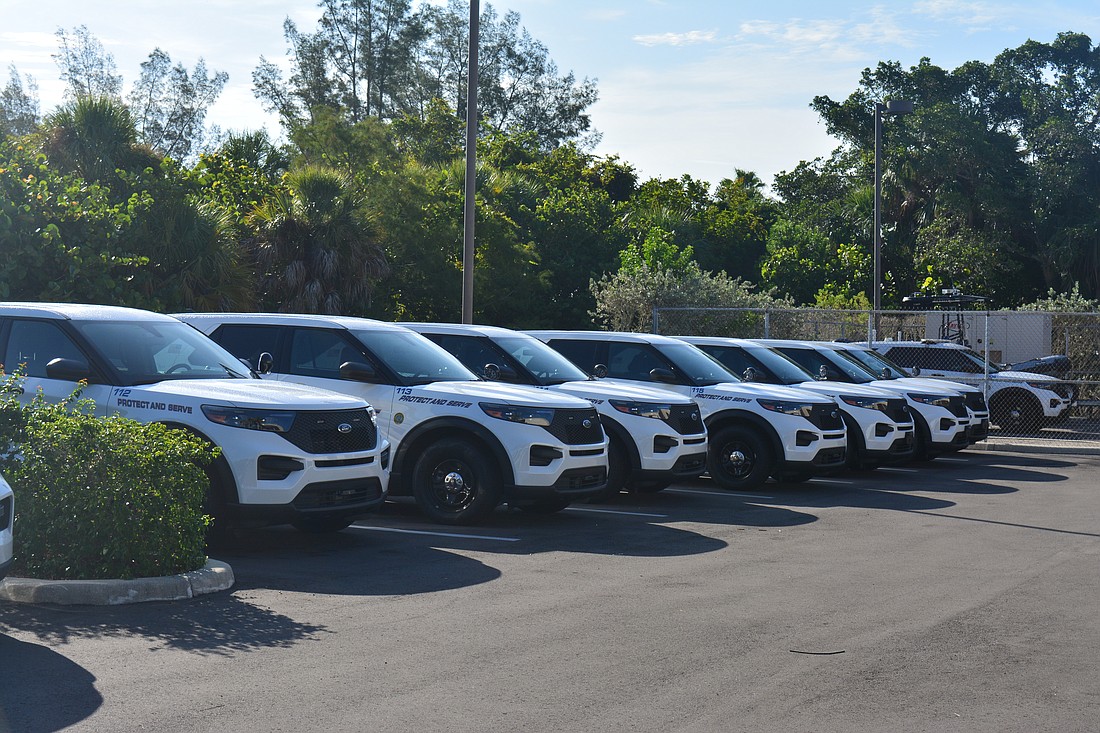- May 3, 2025
-
-
Loading

Loading

The town of Longboat Key’s increase in police department salaries and purchase of take-home vehicles attracted enough attention to get the department on track to be fully staffed by September.
“We’re at that point right now where we’re extremely competitive in the market, and now we can hire the best,” said Police Chief George Turner.
Prior to the updated union contracts that increased police salaries and benefits, Turner said applications to fill vacancies were limited. The candidates could have gone to area agencies that had better pay.
Additionally, there was an increase in the investment in the department’s 401A retirement plan. The police department is not in the Florida State Retirement system, and now Turner is able to show candidates that the 401A offered by the town is “as good, if not better than” the FRS.
Now, the number of applicants has nearly quadrupled, said Turner. He was able to fill four of the five vacancies already, with 15-20 potential applicants in the running for the final position.
“Now there are very qualified people that are wanting to come to Longboat Key, not only for the money and the benefits, but also because Longboat Key is a great place to work,” Turner said. “But it was hard to recruit before when we were at the bottom of the pay level."
Turner said neither his department nor the Longboat Key Fire Rescue Department settle for a merely satisfactory candidate. For fire rescue, the department requires all candidates be paramedics and firefighters. For the police department, Turner only hires officers with experience, rather than recruits right out of the academy.
An officer with 10 years of experience from New York will start on Aug. 1, and another officer, from Indiana, will start Aug. 7.
Turner also hired two part-time marine patrol officers to assist the only full-time marine patrol officer. Those officers will be given regular field training as well, so they can work on land if needed.
The department used to have more officers in 2008, but has since lost some of those positions, according to Turner. Turner hopes that he can get the positions back in the future and get his force back up to the strength it was at in 2008.
The police take-home vehicle program was another recruiting tool, according to Turner.
“There is no downside to it,” he said.
About two years ago, Turner brought the issue of take-home vehicles to the attention of Tom Harmer, former town manager. Longboat Key was one of the last departments in Florida without take-home vehicles, according to Turner.
Harmer was on board with increasing the fleet's size, and supported a take-home vehicle pilot program. When Howard Tipton took over as town manager, he was in full support as well. Town commissioners agreed that the program would be a win-win and approved a resolution for the purchase of new vehicles, June 5.
“The police officer’s office is the patrol car,” Turner said.
Before the take-home vehicle program, the department's patrol cars were "hot seated." Hot seating is the practice of using a vehicle 24 hours per day, seven days a week. When one officer closes a shift, the departing officer immediately passes off the vehicle to the incoming officer, thus keeping the seat “hot.”
One drawback of hot seating patrol cars is that officers have to remove personal equipment, and vice versa, after every shift, Turner said.
“That all takes time,” Turner said. “It takes up on-duty time. We’re spending a lot of on-duty time by just changing equipment around.”
The other way take-home vehicles increase on-duty time is that as soon as officers cross the bridge onto Longboat in their vehicles, they can be on duty rather than needing to go to the station and get a patrol car.
With hot seating, patrol cars only last about two years, according to Turner. Manufacturers also make emergency equipment, such as lights, impossible to swap out, which means a waste of all that equipment that may still have been good.
Turner said take-home vehicles can last about eight to 10 years. The town estimated that over the next 15 years, the take-home vehicle program will save about $1.7 million in fleet replacement costs.
"At present we have 10 patrol vehicles, all marked, waiting emergency equipment and radios before they are in service," Turner said in an email to town officials.
One of the two vehicles the department is waiting for was purchased before the program's approval. Turner hopes the take-home vehicles will be fully implemented by October.
These investments in the department tie into the fact that Turner is seeking accreditation for the department later this year. Having accreditation shows that an agency is treating people being treated fairly and that every aspect of law enforcement is being followed to the best extent. Turner said accredited agencies are usually more attractive for applicants, which will further the department's competitive edge in the future.
Correction: This article has been updated to reflect that Chief George Turner brought the take-home vehicle program to the attention of former town manager Tom Harmer.